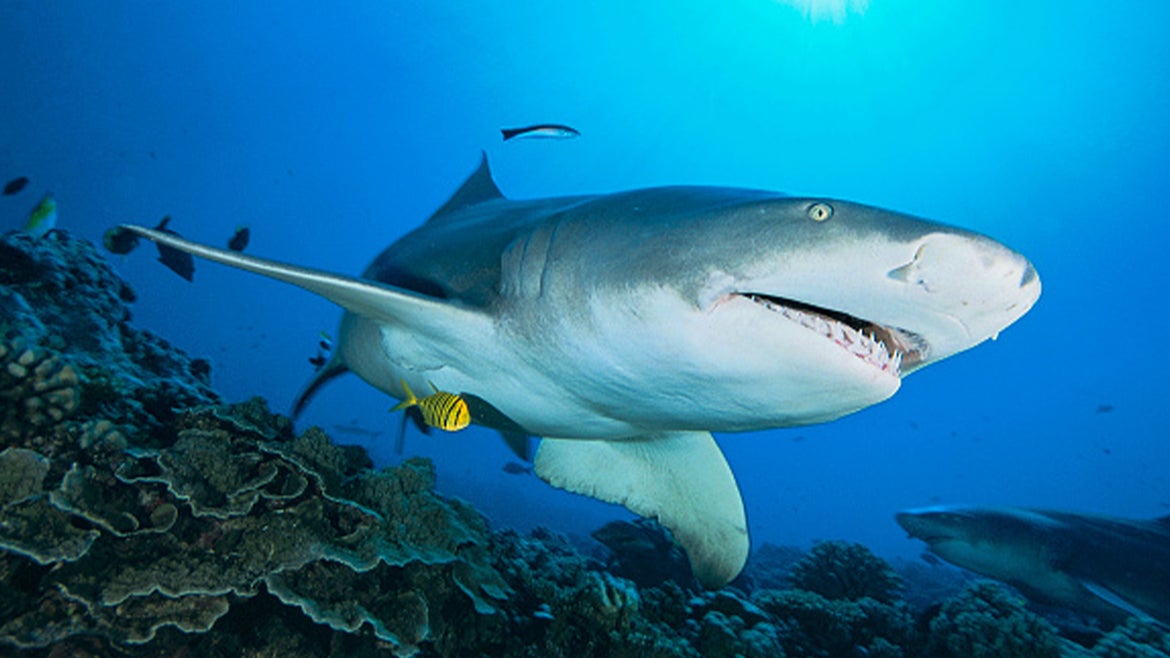Typically, great white sharks are known to travel solo, but researchers have discovered that some of the predators that gather seasonally tend to stick together when patrolling for food.
Researchers who conducted a new study at Florida International University have discovered that great white sharks may be more social creatures than originally thought. .
Typically, these predators are known to travel solo, but lead author Dr. Yannis Papastamatiou and his team's findings may prove otherwise, People reported.
“Most associations were short. But there were sharks where we found considerably longer associations, much more likely to be social associations. Seventy minutes is a long time to be swimming around with another white shark,” Papastamatiou said.
The great white sharks that were observed were cohabitating off the coast of Mexico.
Researchers found that the great white sharks that gather seasonally tend to stick together around Guadalupe Island when patrolling, according to an article in the March edition of Biology Letters.
Researchers placed tags on each of the great white sharks that would give them information on the shark’s behavior and their time spent with other tagged sharks.
Some of their findings revealed how unique each shark was. Some great whites prefer to be in groups with members of the same sex, while others prefer to do their own thing.
One shark that had its tag on for only 30 hours appeared very social and interacted with at least 12 sharks, according to researchers. Another shark, which had its tag on for five days, was not as active and spent time with only two other sharks.
The study also showed how each shark had different hunting strategies. Some were more active at night than during the day, while others preferred shallow waters over deeper waterways.
Papastamatiou is still learning the social habits of these great white predators.
"We still don't know. But it is likely they may stay in proximity of other individuals in case those individuals are successful in killing large prey,” he said.
Papastamatious added: "They aren't working together but being social could be a way to share information.”
Related Stories






